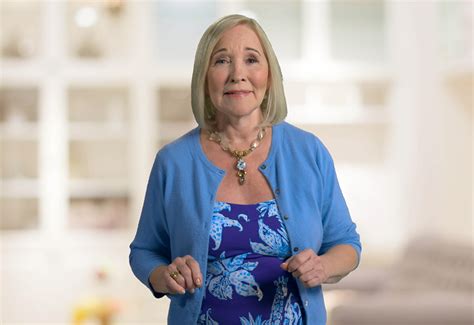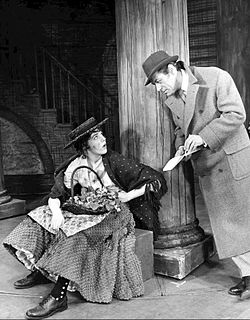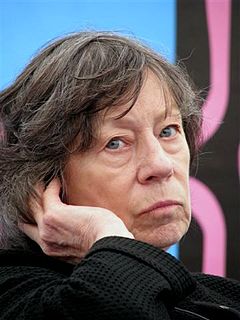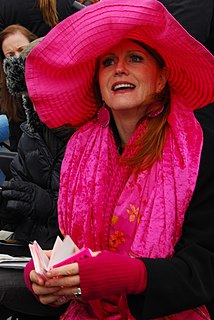A Quote by Camille Paglia
Women are not in control of their bodies; nature is. Ancient mythology, with its sinister archetypes of vampire and Gorgon, is more accurate than feminism about the power and terror of female sexuality.
Related Quotes
When we trust the makers of baby formula more than we do our own ability to nourish our babies, we lose a chance to claim an aspect of our power as women. Thinking that baby formula is as good as breast milk is believing that thirty years of technology is superior to three million years of nature's evolution. Countless women have regained trust in their bodies through nursing their children, even if they weren't sure at first that they could do it. It is an act of female power, and I think of it as feminism in its purest form.
All year there have been these cover stories that the women's movement is dead and about the death of feminism and the post-feminist generation of young women who don't identify with feminism - and then we have the biggest march ever of women in Washington. More people than had ever marched for anything - not only more women, but more people.
Elizabeth Taylor is pre-feminist woman. This is the source of her continuing greatness and relevance. She wields the sexual power that feminism cannot explain and has tried to destroy. Through stars like Taylor, we sense the world-disordering impact of legendary women like Delilah, Salome, and Helen of Troy. Feminism has tried to dismiss the femme fatale as a misogynist libel, a hoary clich?. But the femme fatale expresses women's ancient and eternal control of the sexual realm. The specter of the femme fatale stalks all men's relations with women.
A lot of people don't understand what feminism is. They think it is about advance and success for women, but it's not that at all. It is about power for the female left. And they have this, I think, ridiculous idea that American women are oppressed by the patriarchy and we need laws and government to solve our problems for us.
Ambitious young women today are taught to ignore or suppress every natural instinct, if it conflicts with the feminist agenda posed on them. All literary and artistic works, no matter how great, that document the ambivalence of female sexuality they are trained to dismiss as "misogynous." In other words, their minds are being programmed to secede from their bodies ... there is a huge gap between feminist rhetoric and women's actual sex lives, where feminism is of little help except with a certain stratum of deferential, malleable, white middle-class men.
I think feminism has always been global. I think there's feminism everywhere throughout the world. I think, though, for Western feminism and for American feminism, it not so surprisingly continues to center Western feminism and American feminism. And I think the biggest hurdle American feminists have in terms of taking a more global approach is that too often when you hear American feminists talk about international feminism or women in other countries, it kind of goes along with this condescending point of view like we have to save the women of such-and-such country; we have to help them.
Sexuality is so much more complex than our boobs. My sexuality isn't me as an object to be looked at. It's the way I say "hello" to somebody, the way I sit with somebody. A body is just a body. But we're really afraid of bodies. They hold a lot of power - I think that's why people can try to shame them so easily, because they are so powerful.
They are, in a sense, two sides of the same coin: women are, on the one hand, subjects of an extremely real and abject (as Julia Kristeva put it) body and denigrated sexuality; on the other, the proliferation of images, and their digitalisation produces more and more abstract and air-brushed representations of impossible female bodies. Both indicate, certainly, a "lack of progress." But, one hopes, discussions and resistance are emerging in response.
It is obvious that many women have appropriated feminism to serve their own ends, especially those white women who have been at the forefront of the movement; but rather than resigning myself to this appropriation I choose to re-appropriate the term “feminism,” to focus on the fact that to be “feminist” in any authentic sense of the term is to want for all people, female and male, liberation from sexist role patterns, domination, and oppression.
I feel truth, beauty, love, grief, anger, intimacy & alive in my body... Women in the global south live in their bodies much more than we in the global north. Not as distracted by patriarchy's controlling images - They know power is in their bodies. I am deeply grateful for the women who showed me the way home.
































